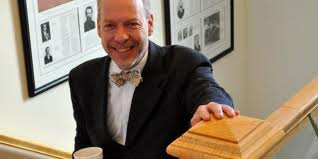This is the kind of post that I’m embarrassed even to put online, but the question continues to come up: are women permitted to sing in the schola at Mass? I know some readers are immediately wondering why someone would ask such a question. But the truth is that among a small sector of the Church, the view that men are the only people permitted to sing is actually alarmingly common. I’ve heard reports of many small Catholic colleges that form only men’s scholas even when there are women students present who have a lifetime of experience in singing. I’ve known parishes where this is also the de facto practice without actually being a policy. I’ve personally known parishes where a men’s schola is struggling through the propers while women who can actually read and sing the chant with mastery are sitting in the pews.
Much of the view comes from an ahistorical reading of old documents, particularly Tra le Solicitudini , in which Pope Pius X says that women cannot “cannot be admitted to form part of the choir.” The ahistorical reading of this passage leaves out the context. The Pope was speaking of the choir in the oldest usage of that term: holders of a clerical office that would sing from the sanctuary itself. He was not referring to lay people singing from the loft. And this is why the promulgation of that document made no dent at all in the makeup of American choirs at the time – a fact that is proven by extensive historical records. Women sang the chant before and women sang the chant after, and this fact was readily and happily acknowledged by the Vatican at the time. This has only become an issue in our own times when we have been so cut off from preconciliar practice that people end up reading documents as roadmaps for the reinvention of what they imagine tradition to be.
So let me state this as plainly as possible. There are no parts of the Mass that women’s may not sing as part of the schola or the choir as we understand that term today.
The Vatican is right now preparing for the canonization of Hildegard of Bingen (1098-1179), who was probably the first named composer of chant. Her compositions are still performed and loved today. She was a woman.
Looking at the 20th century, two people who probably made the biggest difference for sacred music were Justine Ward (1879-1975) in the US and Mary Berry (1917-2008) in the UK. They were both women.
I’m under no illusion that this post is going to make a bit of difference in the prevailing practices of those outposts where women are still silenced. And this is truly tragic, especially now that the cause of sacred music is so much in need of great practitioners. It seems perfectly ridiculous to shut out half the human race from singing but such is the way that deep biases work themselves out in this valley of tears.


